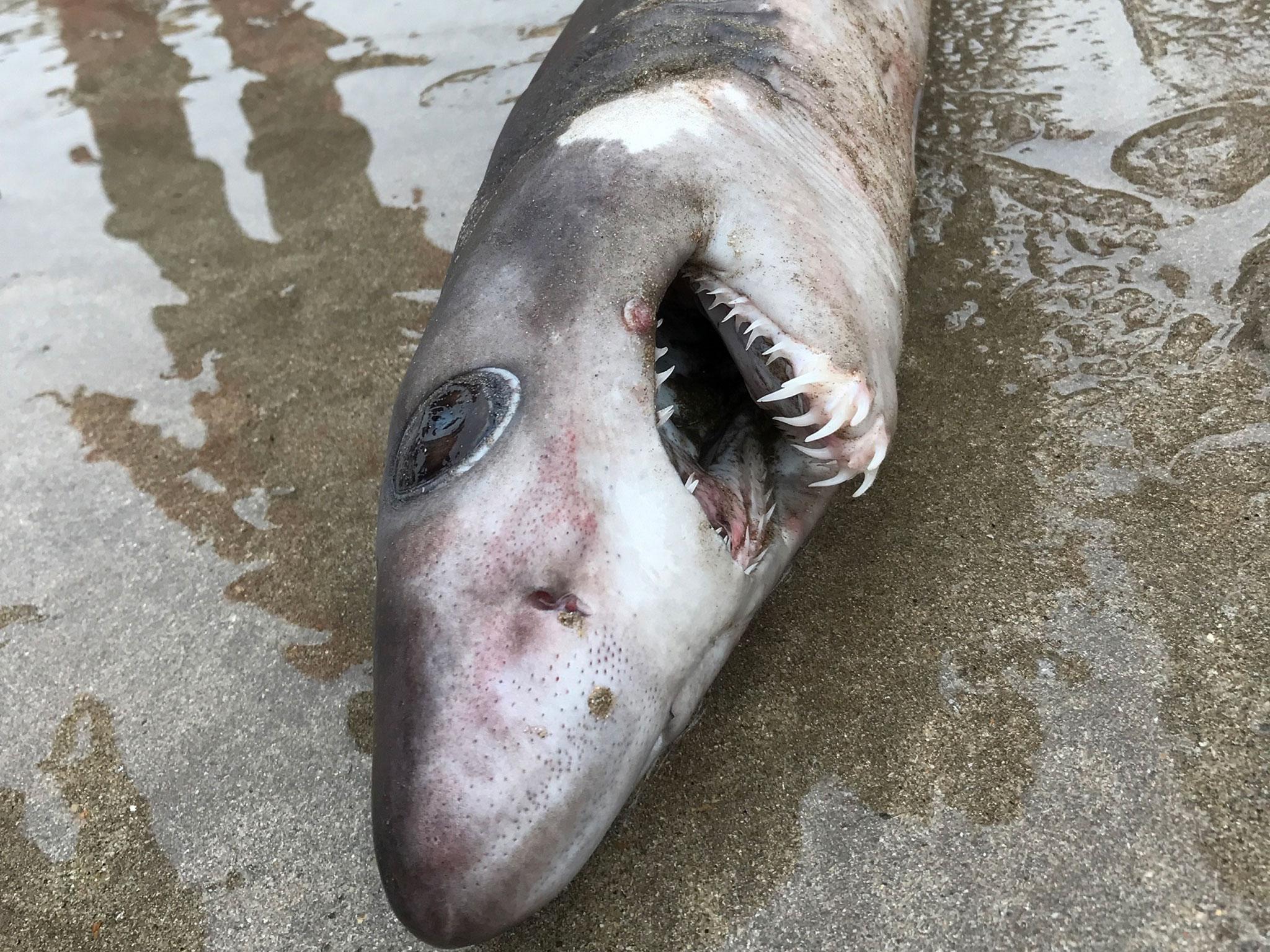Crocodile shark discovered on UK coastline for first time
The species, named because of its crocodile-like teeth, is usually found off Brazil and Australia

Your support helps us to tell the story
From reproductive rights to climate change to Big Tech, The Independent is on the ground when the story is developing. Whether it's investigating the financials of Elon Musk's pro-Trump PAC or producing our latest documentary, 'The A Word', which shines a light on the American women fighting for reproductive rights, we know how important it is to parse out the facts from the messaging.
At such a critical moment in US history, we need reporters on the ground. Your donation allows us to keep sending journalists to speak to both sides of the story.
The Independent is trusted by Americans across the entire political spectrum. And unlike many other quality news outlets, we choose not to lock Americans out of our reporting and analysis with paywalls. We believe quality journalism should be available to everyone, paid for by those who can afford it.
Your support makes all the difference.A crocodile shark – a species that normally lives in tropical waters off Brazil and Australia – has been found on the UK coast for the first time in recorded history.
The animal was found dead on a beach at Hope Cove near Plymouth, according to the National Marine Aquarium in the Devon city.
Experts have identified it as a crocodile shark, Pseudocarcharias kamoharai.
James Wright, the museum’s curator, said: “This species has never been recorded in the UK before, as it is normally found in deep waters during the day in tropical climates, such as Brazil and Australia, then coming shallower at night to feed.
“It is likely to be an isolated incident, but there have been similar stranding incidents in South Africa. This time of year though UK waters are at their coldest so this occurrence is very unusual.”
He added the shark may have died because the water off the UK was too cold.
The museum urged anyone seeing other crocodile sharks to report the sightings to establish if this was simply a one-off incident or the start of a new trend.
As the sea temperature has risen, fish have been moving towards the poles, with some being found hundreds of miles further north than usual.
According to the International Union for Conservation of Nature's Red List of species threatened with extinction, the crocodile shark “may be threatened in the near future” as it is vulnerable to being caught as bycatch by long-line fishing boats.
“It does not appear to be abundant anywhere, with the known exception of the Mozambique Channel in the western Indian Ocean during the 1960s,” the Red List says.
The dead shark was discovered by Steven Greenfields, who said: “We regularly visit this beach and have never seen anything like this before.
“My whole family was stunned as the animal had really unusual features but was unmistakably a shark. I have experience with sharks whilst swimming and diving overseas, but, despite a fair amount of fishing and swimming in the UK all my life, have never seen any shark in UK waters other than dogfish.
"Because it was so unusual we consulted our local aquarium to confirm what species it was.”
Paul Cox, managing director of The Shark Trust, said the discovery was “really interesting”.
“This tiny shark with spiky teeth – hence the name – is the smallest of the mackerel sharks, the group that includes the great white and our own porbeagle and mako sharks,” he said.
“They are relatively uncommon and the UK is well outside the shark’s usual range so it’s a really interesting find.
“Currently listed as near-threatened in the IUCN Red List of Threatened Species, the crocodile shark is too small to be valuable in fisheries.
“However, they are caught, like many other sharks, as bycatch in high seas fisheries which will likely impact on their future status. For all sharks, but especially the less common ones, any information that we can get is useful so it’s great that this one has been reported and identified.”
This article has been corrected to say Plymouth is, of course, in Devon, not Cornwall
Join our commenting forum
Join thought-provoking conversations, follow other Independent readers and see their replies
Comments